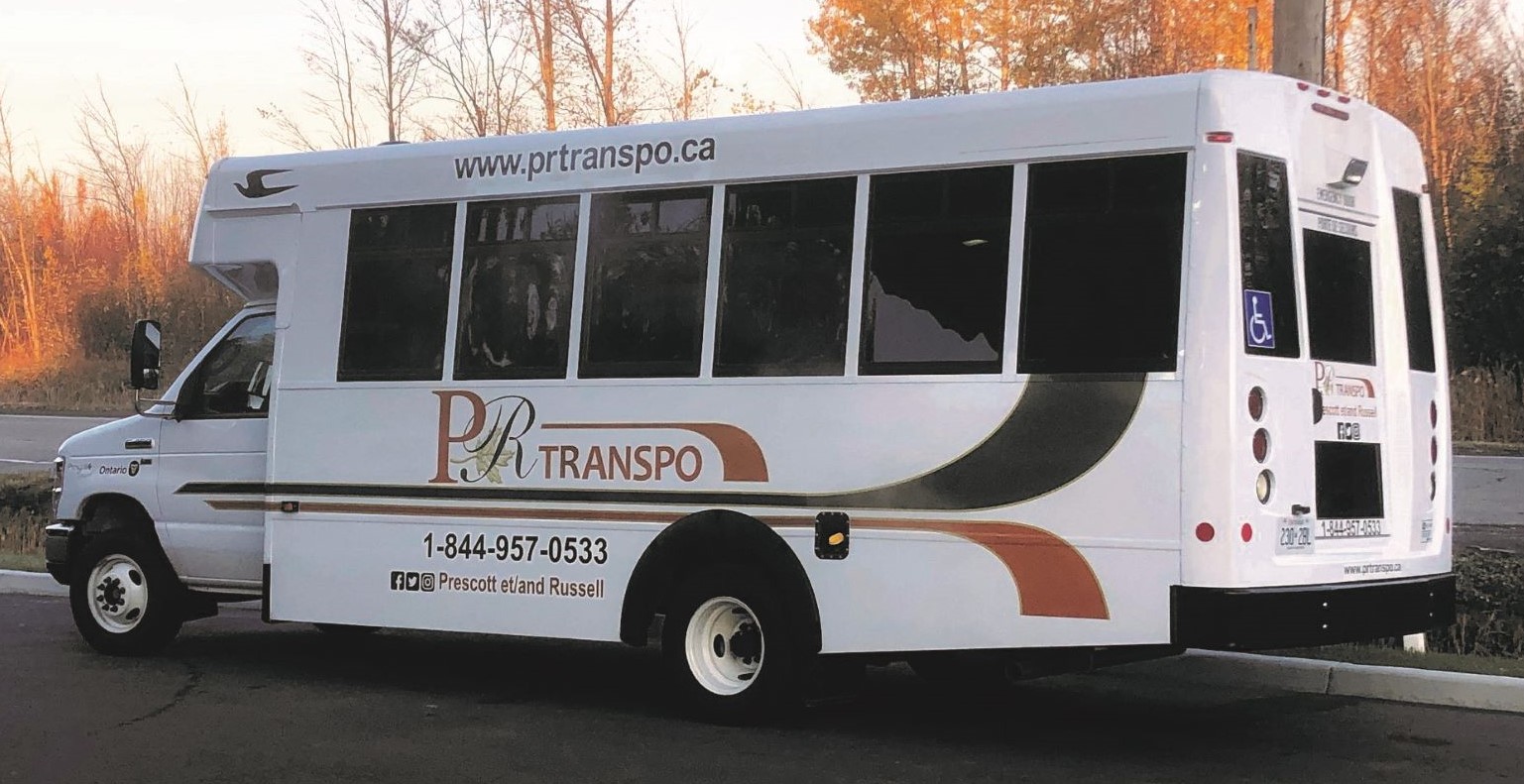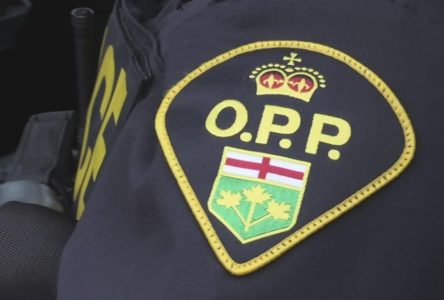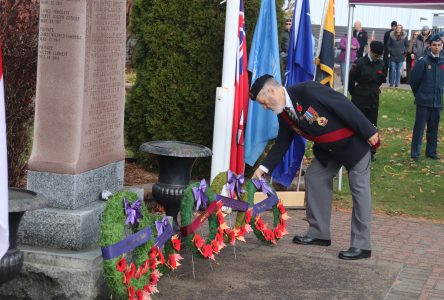“The bottom line is it doesn’t look good,” said Stéphane Parisien, chief administrator for the United Counties of Prescott-Russell (UCPR), during the January 26 session of UCPR council.
Parisien referred to the ridership numbers contained in the latest operations report for the PR Transpo service. The public transist service has been struggling with its ridership numbers ever since it began in 2018 as one of several pilot projects for rural public transit sponsored through a provincial support grant.
PR Transpo history
PR Transpo began as a fixed-route setup with two 20-passenger buses, which were designed to include passengers in wheelchairs, that would provide inter-municipal public transit throughout the Prescott-Russell region, with a transfer connection in Orléans to OC Transpo for riders who wanted to go to Ottawa for personal reasons.
The UCPR would operate the service, through a contract with a private-sector bus company, and the provincial government would provide the operation funds for the pilot project for a five-year period. Both the UCPR and the eight municipalities would work together to promote the regional public transit service to Prescott-Russell residents. The UCPR would provide regular reports to the province on ridership numbers as part of an evaluation on whether or not the service would be viable at the end of the pilot project period to turn over to the private sector for continued operation.
PR Transpo had a late start and did not begin operations until April 2018. Ridership numbers were low during its first two years of operation. Then the pandemic in 2020 shut down the public transit service as part of the provincial lockdown. The service resumed operations in 2021 when the provincial government lifted some of its restrictions on travel during the second year of the pandemic.
The provincial government agreed to an extension on the pilot project’s timeline since very little if any of the support grant funds were spent during 2020. The UCPR did a review of the system and decided in June 2021 to change PR Transpo into an on-call public transit service. Residents could call PR Transpo for specific pickup and dropoff sites for their day’s use of the public transit system. The revamp included revision of the ticket prices for users of the service.
On-call ridership
Parisien told the eight mayors on UCPR council that the latest statistical report on use of the public transit service is not encouraging for PR Transpo.
“It’s neither viable nor sustainable in its present form,” he said.
The on-call version of PR Transpo operated for 19 months, from June 2021 until December 2022 when there was a temporary interruption in service. During that time there were 234 people using the public transit service, for a total of 6,167 boardings, including 21 boardings that involved a rider in a wheelchair. An online survey indicated the overall rider satisfaction rating for PR Transpo was 4.8 out of five.
The boarding numbers fluctuated over the last 19 months of PR Transpo’s operation, from a low of 94 in September 2021 to a high of a high of 609 in November 2022, but the report noted “an upward trend” in the amount of use of the public transit service. The greatest number of users were Hawkesbury residents at 28 per cent of the ridership numbers, people from the City of Clarence-Rockland and Alfred-Plantagenet Township the second-highest group of users at 15 per cent each, and Russell Township next at 14 per cent. More than half of the people using PR Transpo are adults, amounting to 63 per cent of users. Almost 20 per cent of riders are seniors.
“Since the transition to on-demand service, PR Transpo has experienced a minimal but steady increase in its number of users,” stated the report. “Between December 31 2021 and December 31 2022, an additional 108 users took advantage of the service.”
Even with the increase in rider numbers over the past 19 months, the total number of people using PR Transpo is 234 since the public transit service began operations. That is 0.2 per cent of the 95,600 people living in Prescott-Russell.
Cost for PR Transpo
The report noted that from April 2018 to May 2021, total operation expenses for PR Transpo as a fixed-route public transit system was $528,710.02. Fare revenue for that period totaled $21,835.68. The net cost for the service, minus the fare revenue, was $506,874.34, which was covered by the provincial grant funds for the pilot project.
From June 2021 to the end of November 2022, when PR Transpo changed to an on-call public transit service, the total operation expenses were $685,626.75. Total fare collected was $33,892.71. Allowing for inflation affecting the cost of fuel for the buses, PR Transpo’s net operation costs covered by the provincial grant were $651,734.04.
The province provided almost $3 million from its Community Transportation Grant program to cover almost all of the operation costs of PR Transport as a pilot project until March 2025. The UCPR agreed to provide $140,000 over the seven-year period for the project and provide in-kind management service for the project.
Now UCPR council and administration must decide what will be the future for PR Transpo.
“It’s not sustainable in its present form,” said Parisien. “We’re going to have to look at something else.”
UCPR council voted to accept the PR Transpo report for further review and discussion at a later date.



